Discover the 7 essential Lebanese spices that form the foundation of authentic Lebanese cooking. Unlike generic Middle Eastern spice blends, Lebanese cuisine relies on precise combinations and regional variations that create its distinctive flavor profile. This guide cuts through the confusion to give you exactly what you need to know to recreate genuine Lebanese dishes at home.
Essential Lebanese Spices Quick Reference Guide
These seven spices are the cornerstone of authentic Lebanese cooking. While other Middle Eastern cuisines might use similar ingredients, Lebanese cooking features unique combinations and regional variations that distinguish it from neighboring culinary traditions.
| Spice | Why It's Essential | Where to Find Authentic Versions |
|---|---|---|
| Cumin | Provides earthy depth in meat dishes, especially in kibbeh | Look for medium-dark seeds with strong aroma; avoid pre-ground versions |
| Turmeric | Gives golden color to rice dishes without overpowering heat | Choose vibrant orange powder; Lebanese markets often sell fresher batches |
| Paprika | Sweet red pepper flavor essential for mountain region kebabs | Seek Hungarian or Spanish sweet paprika as closest substitutes |
| Allspice | Lebanon's signature spice, used more generously than neighboring countries | Buy whole berries and grind fresh for authentic Lebanese meat stuffings |
| Nutmeg | Subtle warmth in coastal lamb dishes, rarely used in desserts | Freshly grated from whole nutmeg is essential for authentic flavor |
| Sumac | Tart, lemony flavor that defines Lebanese salads and meat preparations | Zahlé sumac from Lebanon provides the deepest red color and best flavor |
| Cinnamon | Earthy-sweet warmth in stews; whole sticks preferred over powder | Ceylon cinnamon is traditional; avoid cassia which is more common in US |

Where to Buy Authentic Lebanese Spices
Many beginners struggle to find genuine Lebanese spices. Here's where to look:
- Local Middle Eastern markets: Often carry Lebanese-specific spice brands and fresher stocks
- Online Lebanese specialty stores: Look for stores that specifically mention Lebanese products
- Whole spices vs. pre-ground: Always purchase whole spices when possible and grind them yourself
- Storage tips: Keep in airtight containers away from light and heat for maximum freshness
Lebanese Spice Usage: What Most Guides Get Wrong
Unlike generic Middle Eastern cooking guides, authentic Lebanese spice application follows these key principles:
- Balance over intensity: Lebanese cuisine emphasizes subtle harmony rather than dominant flavors
- Regional differences matter: Coastal dishes use lighter applications while mountain regions incorporate more warming spices
- Toasting technique: Always toast whole spices in olive oil before grinding for maximum flavor release
- "A pinch" measurement: Traditional Lebanese cooking rarely uses precise measurements
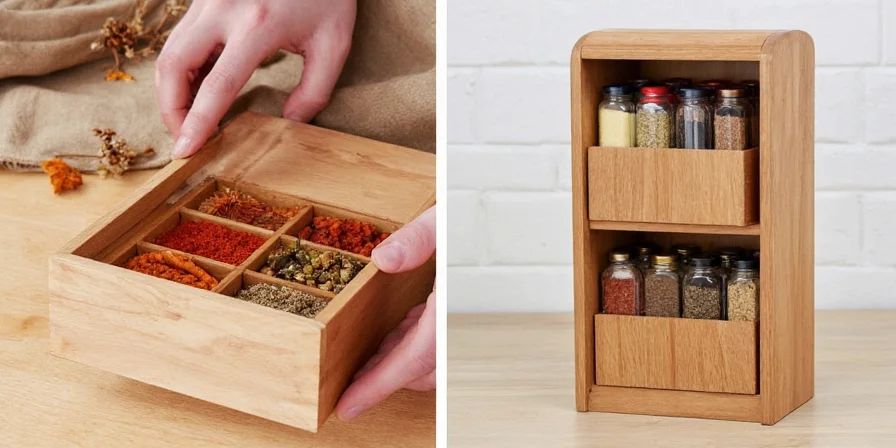
3 Simple Lebanese Spice Blends to Try Today
Forget complex recipes—these three signature blends capture authentic Lebanese flavor profiles:
- Basic Lebanese Allspice Blend: 3 parts allspice, 1 part cinnamon, ½ part nutmeg (perfect for meat stuffings)
- Coastal Sumac Blend: 2 parts sumac, 1 part paprika, ½ part cumin (ideal for salads and fish)
- Mountain Spice Mix: 2 parts cumin, 1 part paprika, 1 part turmeric (essential for mountain region stews)
Most Common Lebanese Spice Mistakes to Avoid
- Using pre-ground spices: Loses 60% of flavor within weeks; always grind fresh
- Substituting lemon juice for sumac: Missing sumac's complex tartness essential to Lebanese dishes
- Overusing cinnamon: Authentic Lebanese cooking uses less than Turkish or Greek versions
- Ignoring regional variations: Using the same spice blend for coastal and mountain dishes
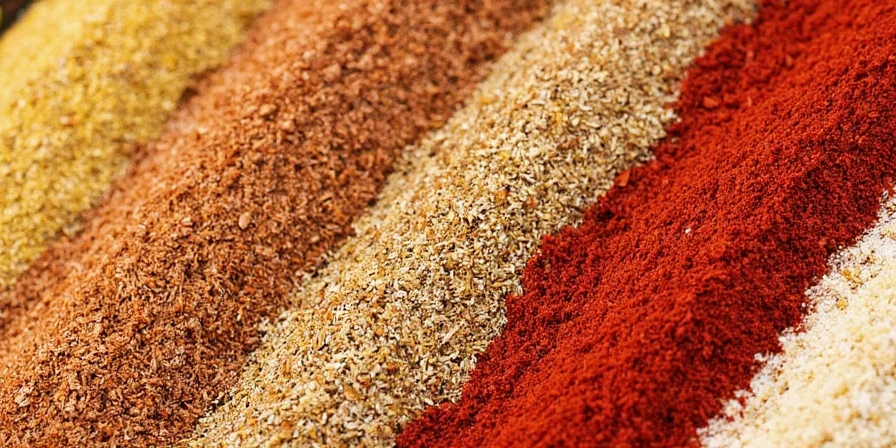
Beginner-Friendly Lebanese Spice Recipes
1. Simple Lebanese Spiced Chicken (Ready in 30 Minutes)
Mix 2 tbsp Coastal Sumac Blend with olive oil, lemon juice, and garlic. Marinate chicken for 15 minutes, then grill. Serve with fresh parsley and lemon wedges.
2. Authentic Lebanese Lentil Soup (One-Pot Meal)
Sauté onions with 1 tbsp Mountain Spice Mix, add lentils and broth. Simmer until tender. Finish with lemon juice and fresh cilantro.
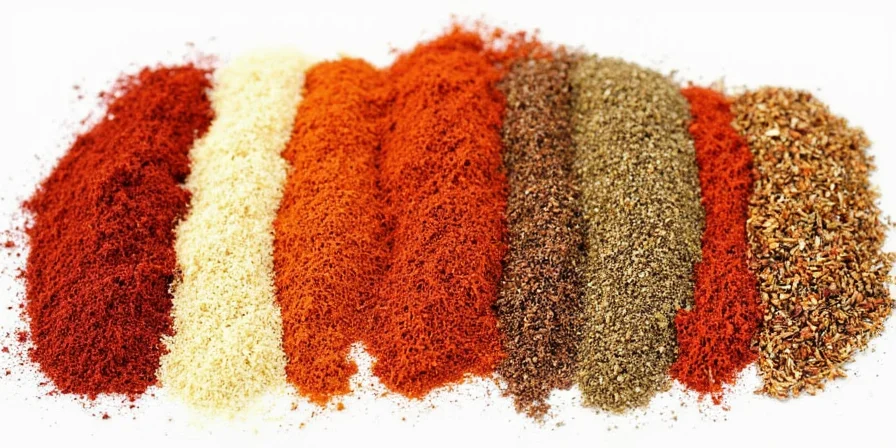
3. Easy Lebanese Spiced Rice
To 1 cup rice, add 1 tsp Basic Lebanese Allspice Blend and 1 tbsp toasted pine nuts. Cook with broth instead of water for authentic flavor.
Lebanese Spice FAQs: Quick Answers
- What's the #1 spice Lebanese home cooks always have? Sumac - used daily in salads and meat dishes
- Can I substitute lemon juice for sumac? Not authentically - sumac provides complex tartness lemon juice can't replicate
- How long do Lebanese spices stay fresh? Whole spices: 1-2 years; ground: 3-6 months
- Do I need special equipment? A simple mortar and pestle works best for authentic grinding
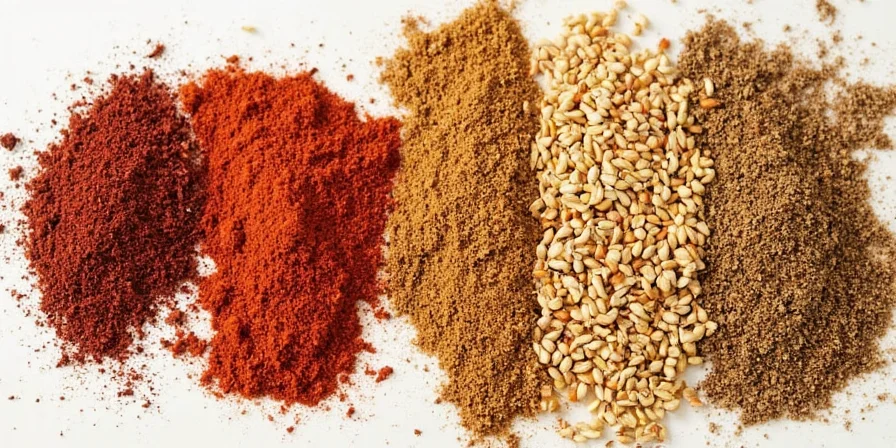
Final Tips for Authentic Lebanese Flavor
Mastering Lebanese spices is simpler than you think. Start with these three actionable steps:
- Begin with one regional blend: Try the Coastal Sumac Blend for salads and fish dishes
- Toast before using: Heat whole spices in olive oil for 1-2 minutes before adding other ingredients
- Use the "pinch" method: Add gradually while tasting - authentic Lebanese cooking values balance over intensity
Remember that Lebanese cuisine celebrates fresh ingredients enhanced by subtle spice combinations, not overwhelmed by them. With these essential spices and techniques, you'll create genuinely Lebanese dishes that capture the authentic flavors of Lebanon's diverse regions.
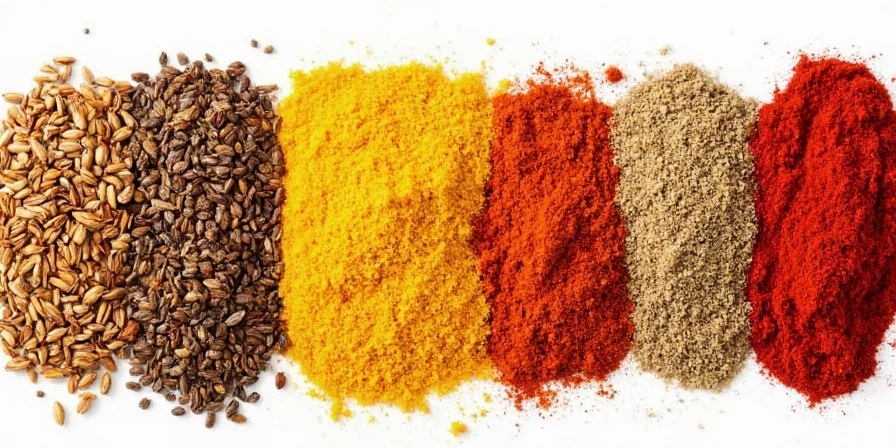
Beginner's Spice Shopping List
Start with these 4 essential spices to create authentic Lebanese flavors:
- Whole allspice berries (not pre-ground)
- High-quality sumac (look for deep red color)
- Ceylon cinnamon sticks
- Freshly ground cumin seeds

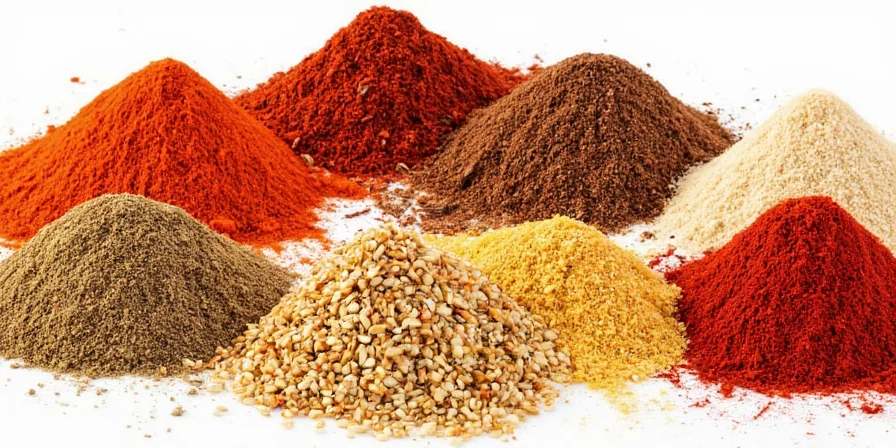









 浙公网安备
33010002000092号
浙公网安备
33010002000092号 浙B2-20120091-4
浙B2-20120091-4